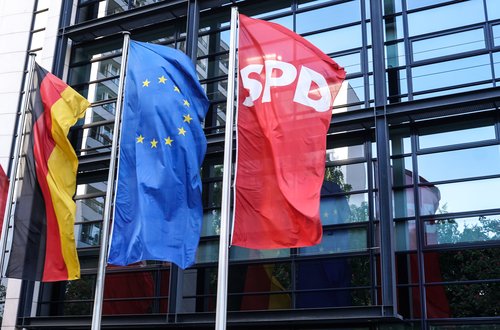Brussels (Brussels Morning) The latest polls show the German Social Democrats (SPD) are on track to secure a ruling majority with a three-party coalition, the party’s ratings having caught up with the Greens, while its chancellor-candidate is by far the most popular of the three contestants.
An INSA poll, published on Sunday, places SPD dead even with the Greens, in joint second place with 18% support. The same poll gives the liberal Free Democrats (FDP) 12% support, as the fourth strongest party.
If sustained until the September elections, this level of support would give the three parties the option to form a coalition that would almost certainly command a majority in the Bundestag. With 48% of the vote, it would dislodge Chancellor Angela Merkel’s Christian Democratic Union (CDU) from power after 12 years. Merkel has announced she is retiring and will not stand in the upcoming elections.
Her successor as party head, and the CDU’s chancellor-candidate, Armin Laschet, has been dropping in the polls since he was caught on camera, filmed laughing while visiting a major flood scene in his home state of North Rhine-Westphalia, where he serves as Premier. While CDU is polling at around 26%, Laschet’s personal rating as a potential chancellor is at 14%.
He remains one point ahead of the Greens’ chancellor-candidate, Annalena Baerbock, whose own string of campaign gaffes has seen her party’s rating dip to its current level, after briefly surging to overtake the CDU earlier this year.
SPD’s chancellor-candidate Olaf Scholz’s campaign strategy meanwhile continues to play out positively. As Vice-Chancellor and Minister of Finance, Scholz presented himself as a politician experienced in holding executive power, as a capable crisis leader, and as someone who offers a policy of continuity after Merkel’s departure, yet also offers a change for the better in terms of a different political option.
Scholz’s reported plan was to bank on his personal popularity, currently far ahead of the other two candidates with 27%, wait for Laschet and Baerbock to make mistakes, and for his party to edge into second place, a position from which it could lead the so-called “traffic light coalition”, named after the red, yellow and green colours of the SPD, the FDP and the Greens, respectively. His strategy now seems to be bearing fruit.




